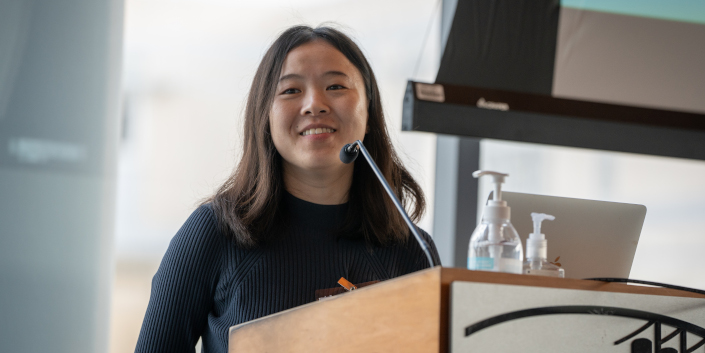Rose Yu is a 2024 Innovator of AI in New MIT Technology Review
Published Date
Story by:
Media contact:
Share This:
Article Content
University of California San Diego computer scientist Rose Yu is one of the MIT Technology Review’s Innovators Under 35 in this year’s list of “exceptionally talented young innovators” whose work has “the greatest potential to transform the world.”
Yu, an associate professor in the Jacobs School of Engineering’s Department of Computer Science and Engineering, is featured in the category of artificial intelligence (AI), where the Review says, “By applying the rules of physics, she’s made AI systems more practical.”
Her accomplishments at the university and in the field are many: climate modeling, deep learning, physics-guided AI.

The Review notes:
“Rose Yu, 34, is a leader in physics-guided deep learning, an emerging field that attempts to bake real-world rules into AI systems. She works with scientists to understand the physical laws most relevant to their research. Then she develops models that obey those laws, meaning they only produce scenarios that could happen in the real world. And she trains those models on large sets of relevant data.
Her methods have led to many real-world advances. As a postdoc at Caltech, she built a model to create more accurate traffic forecasts for Los Angeles; Alphabet later deployed it in Google Maps. During the pandemic, she co-led a team to project US covid deaths; the US Centers for Disease Control and Prevention then incorporated that work into its own algorithms.

Recently, Yu worked with collaborators to improve the resolution of climate models. Her algorithms are especially adept at describing turbulence—critical to understanding hurricanes or El Niño. She has sped simulations of that phenomenon by three orders of magnitude, she says. Now she’s partnering with the fusion company General Atomics and others on a three-year project to model how plasma interacts with the inside of a nuclear reactor.”
Yu is a lead faculty member in the department’s AI group. Among her accolades, she most recently received the DARPA Young Faculty Award for her research aimed at improving the ability of large language models (LLMs) to solve complex real-world tasks with unseen scenarios.
"“There’s a very broad interest in AI for science across campus,” Yu has said. “It’s very important for us as engineers to understand what problems are important to the scientific field so that we’re developing tools that are actually useful for them."
Learn more about research and education at UC San Diego in: Artificial Intelligence
Share This:
You May Also Like
Stay in the Know
Keep up with all the latest from UC San Diego. Subscribe to the newsletter today.



